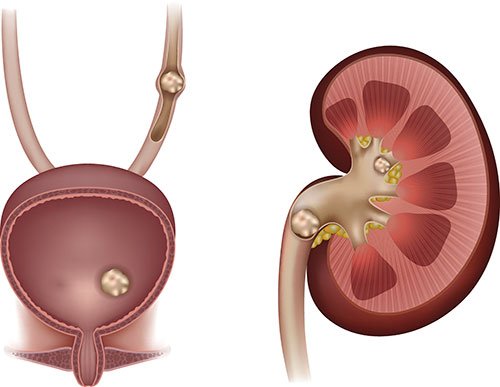Urine contains a number of dissolved minerals and salts. If the urine of a person has high levels of such salts and minerals, it can lead to the formation of kidney stones. People diagnosed with kidney stones need to contact a good urologist like Dr. Cletus Georges to understand which treatment approach to take to manage the issue. Some stones stay in the kidney, and do not cause any problems. In fact, they can even be passed out of the body in urine. However, if these stones get lodged in the ureter, it may block the urine flow from that kidney and cause a lot of pain.
Kidneys, ureters, urethra and bladder are part of the urinary tract. While usually, kidney stones do originate in the kidneys, they can be formed anywhere along the urinary tract. People need to contact a qualified urologist like Dr. Cletus Georges in case they observe any symptoms of kidney stones in themselves. This includes a sharp pain in the back and side, a feeling of intense need to urinate, a burning feeling during urination and urine that is dark or red due to blood.
There are multiple factors that can contribute to the formation of kidney stones. Here are some of them:
- Low urine volume: This is a major risk factor for kidney stones. Low urine volume can be a result of living in a hot place, not drinking enough fluid or dehydration. If the urine volume is low, it will be concentrated and dark in color. Concentrated urine implies that it has less fluid to keep salts dissolved. Increasing the fluid intake can dilute the salts in the urine, and reduce the risk of kidney stone formation.
- Bowel conditions: There are particular bowel conditions, like Crohn’s Disease or ulcerative colitis, which can cause diarrhea and increase the risk of formation of calcium oxalate kidney stones. Patients who have undergone gastric bypass surgery and similar procedure also face a similar risk. Diarrhea can cause loss of large amounts of fluid from the body, subsequently lowering the urine volume. The body of the patient may absorb excessive oxalate from the intestine as well in this situation, thereby resulting in more oxalate in the urine that helps cause calcium oxalate kidney stone
- Diet: Having high levels of calcium in the urine is a major cause of kidney stones. While stopping all calcium intakes is not ideal as it is important for bone health, one should see to it that their calcium intake should not be too high. Rather than lowering dietary calcium intake, it will be better to reduce urine calcium levels by decreasing sodium or salt intake. Too much salt in the diet is a major risk factor for kidney stones. This is due to the fact that if too much salt is passed into the urine, it will keep calcium from being reabsorbed from the urine and into the blood.

